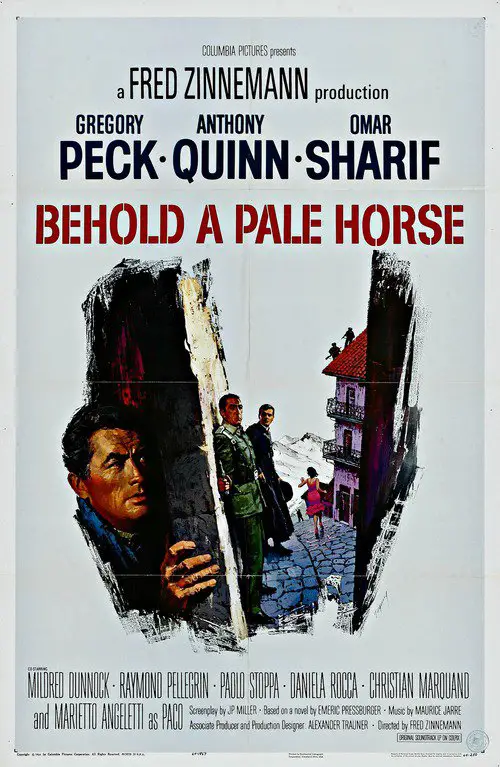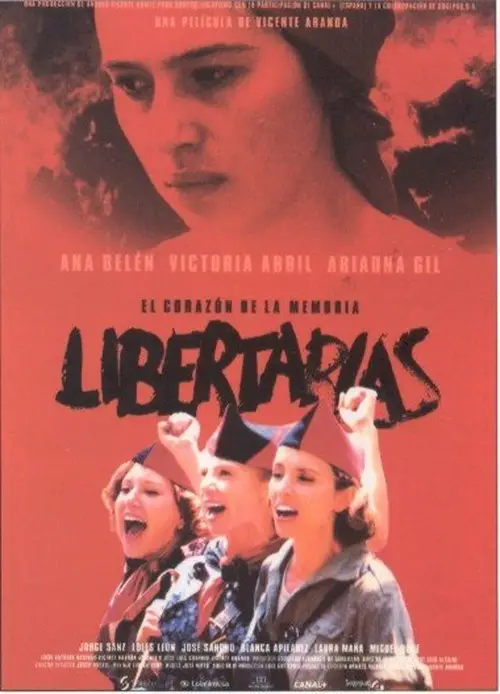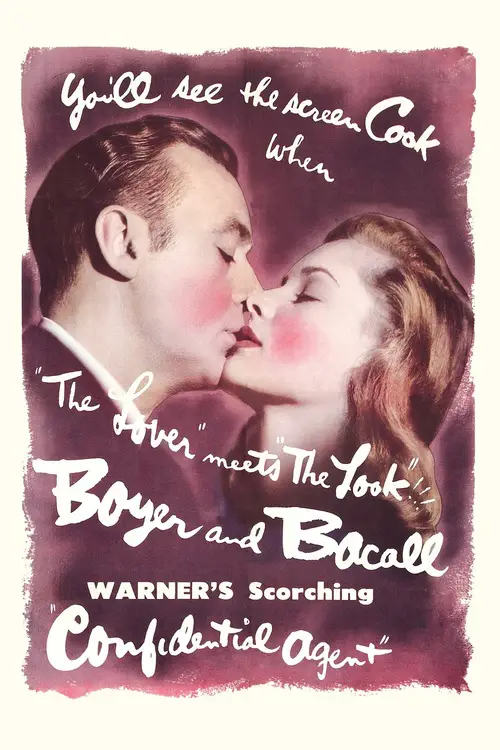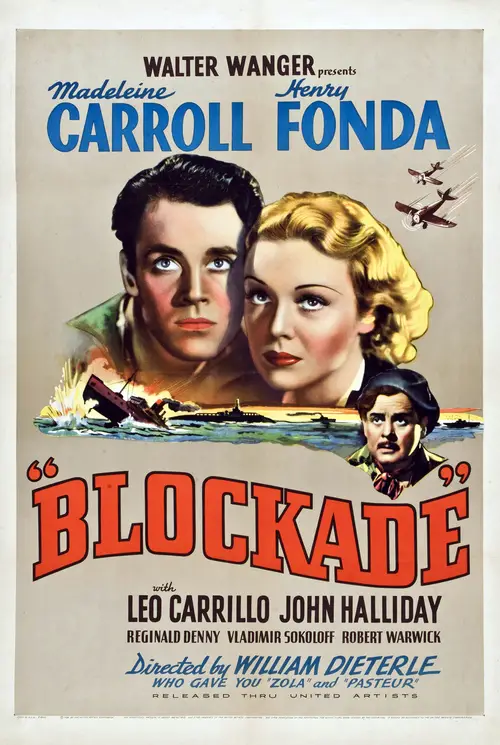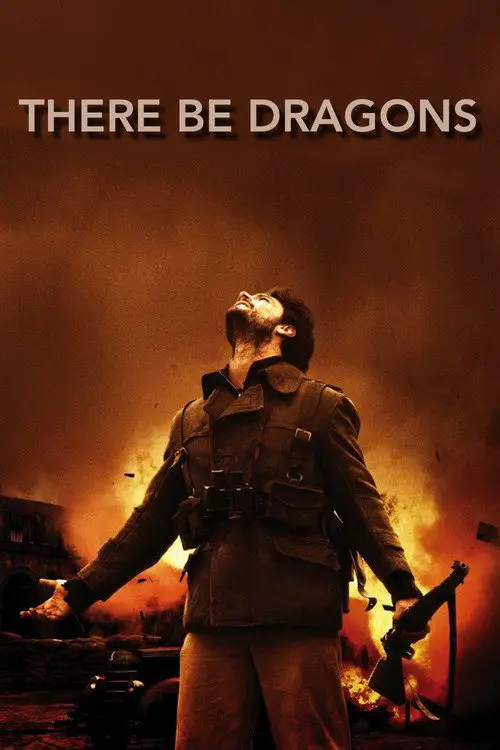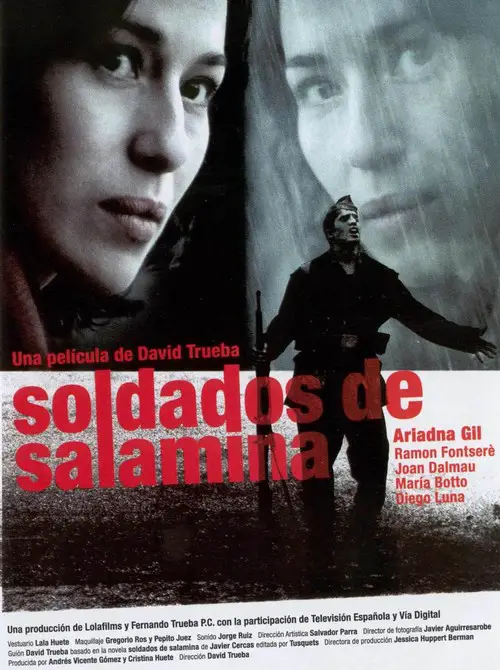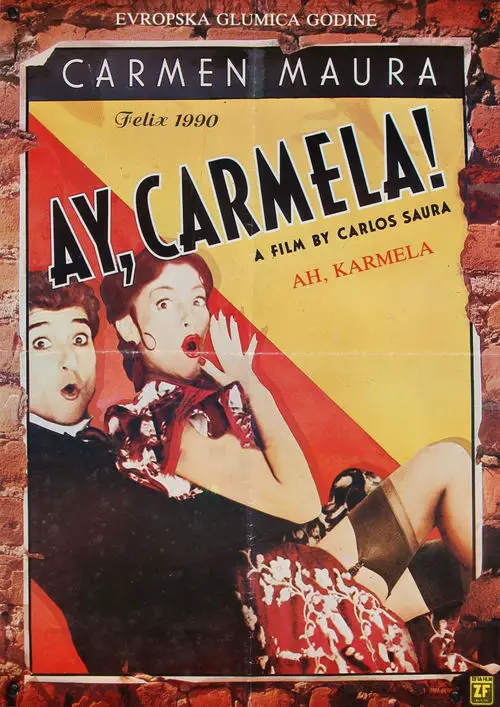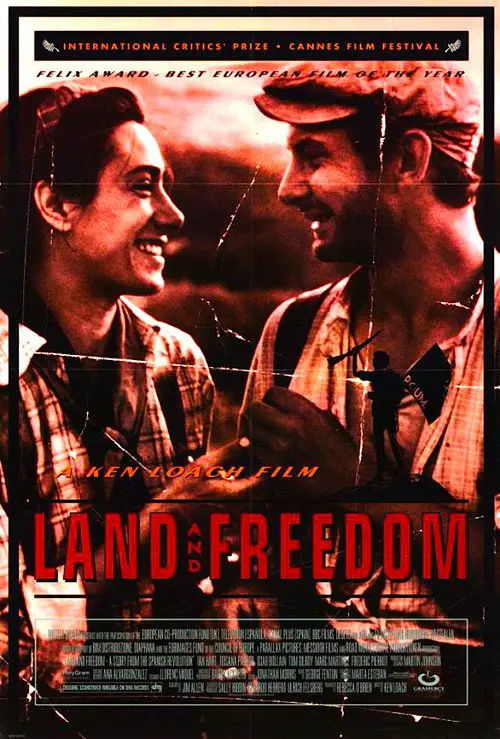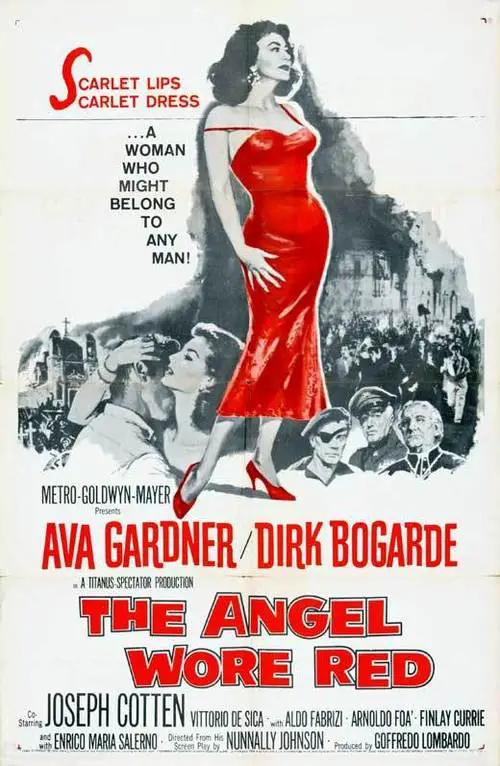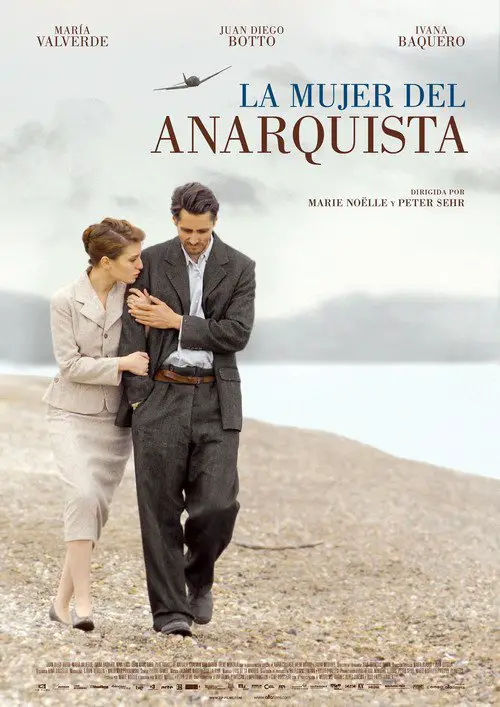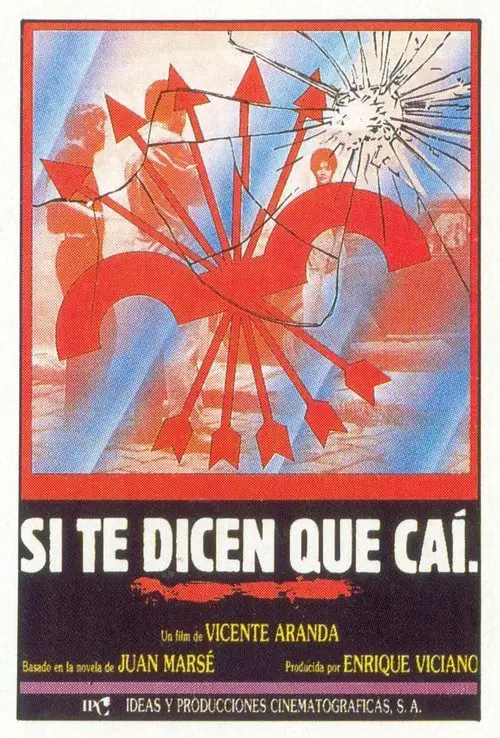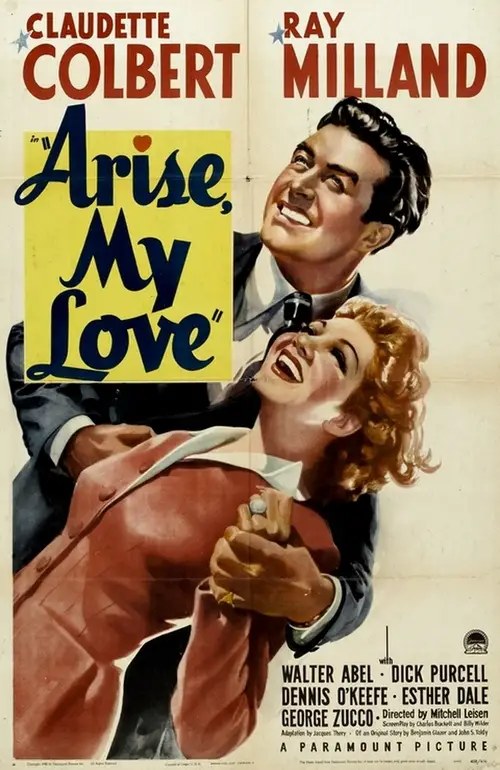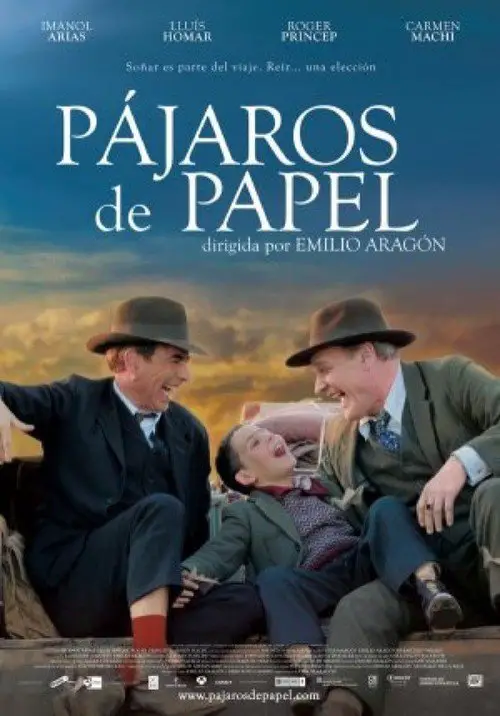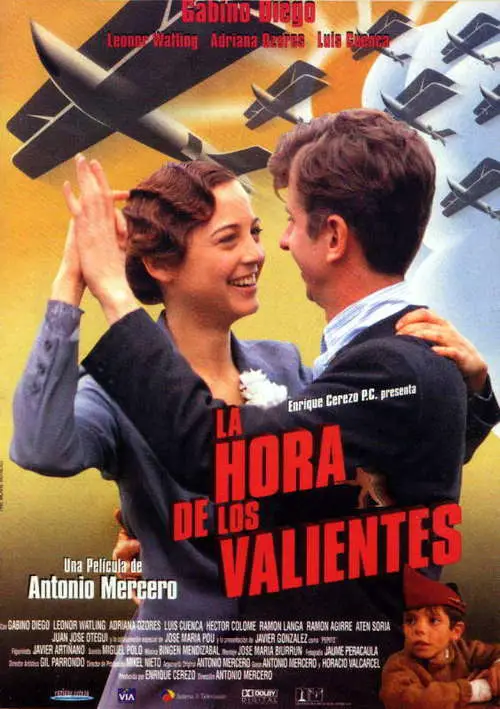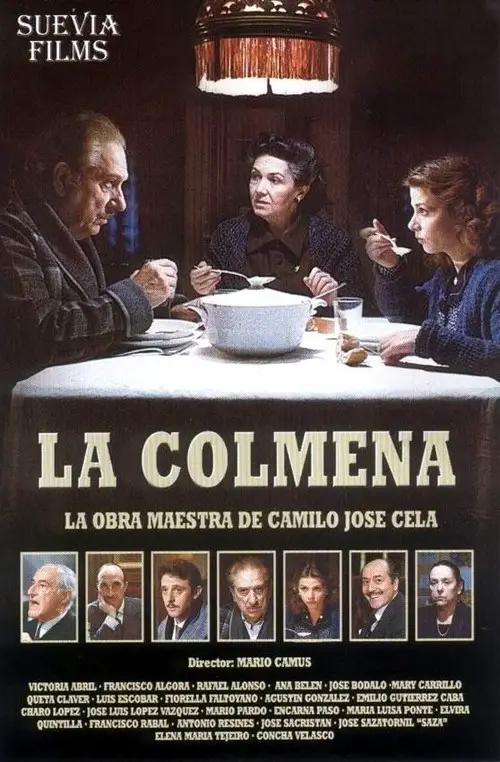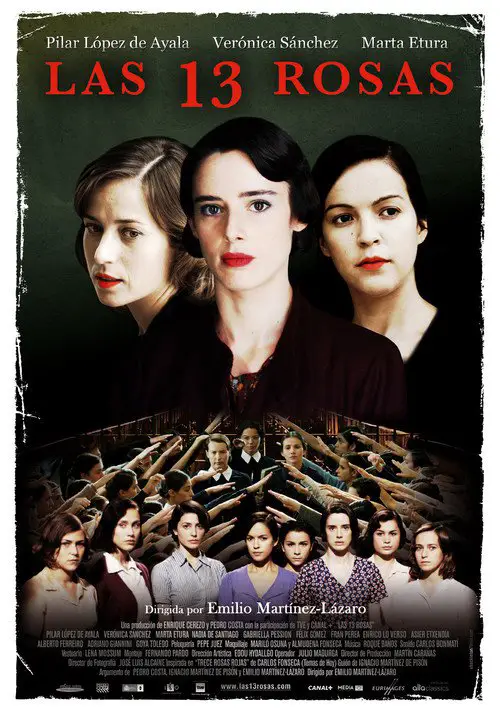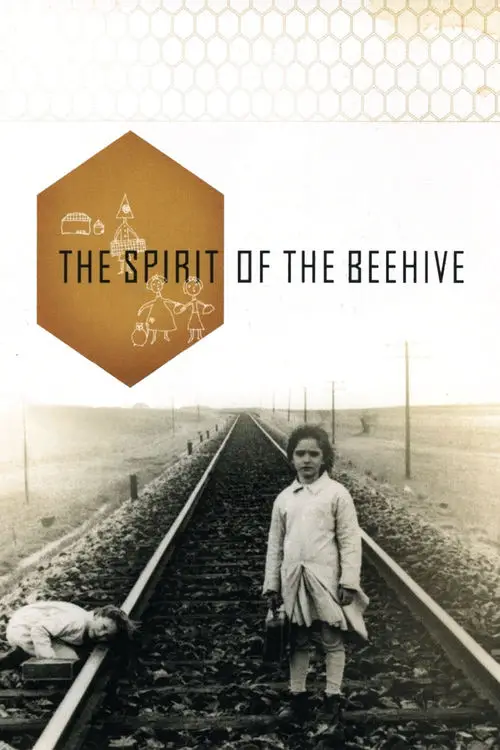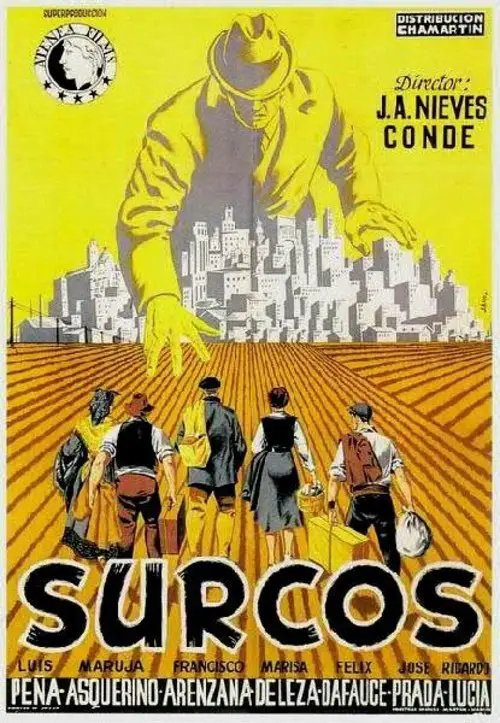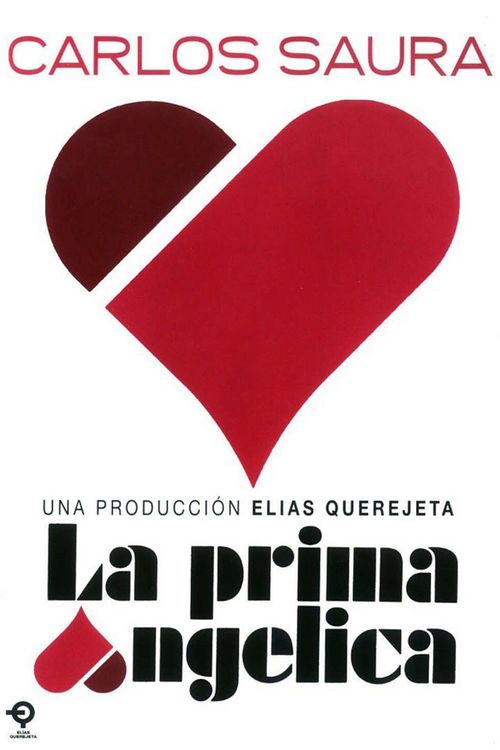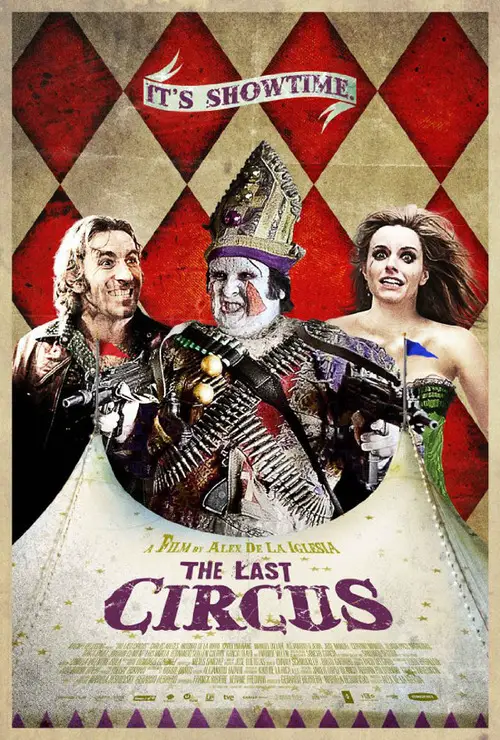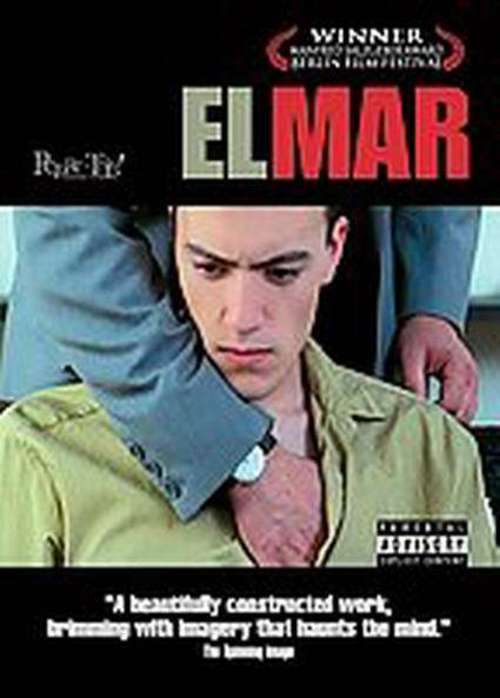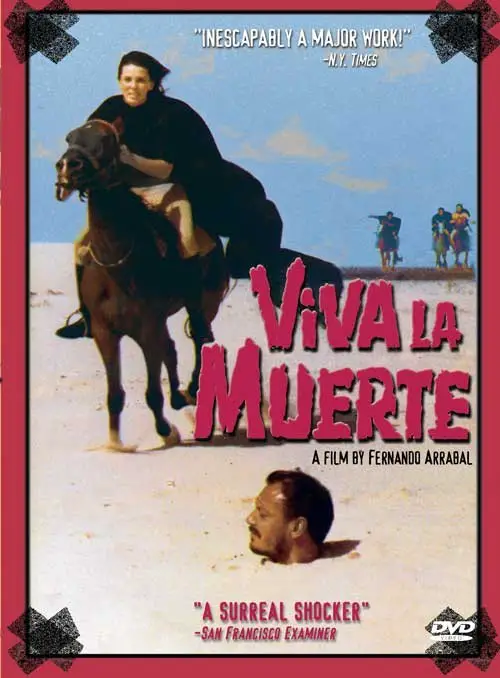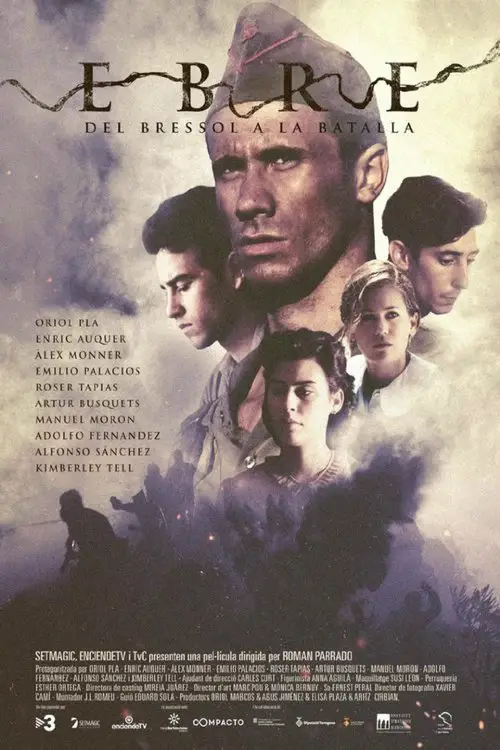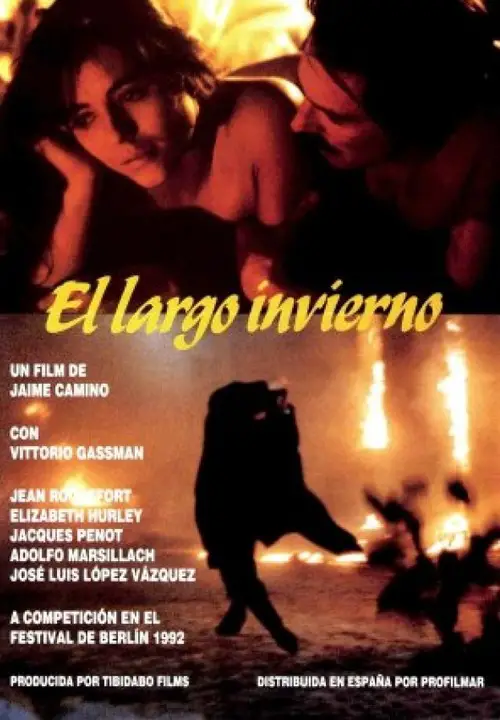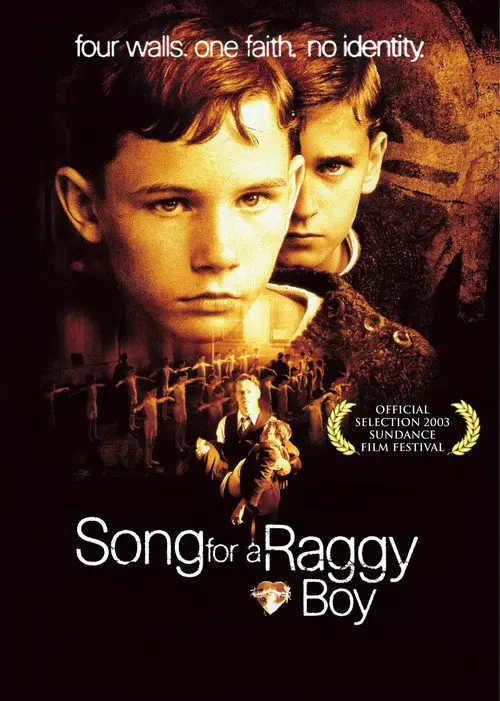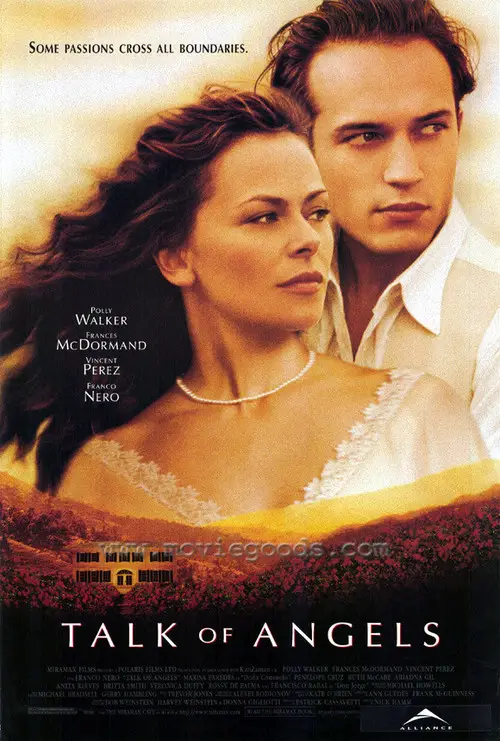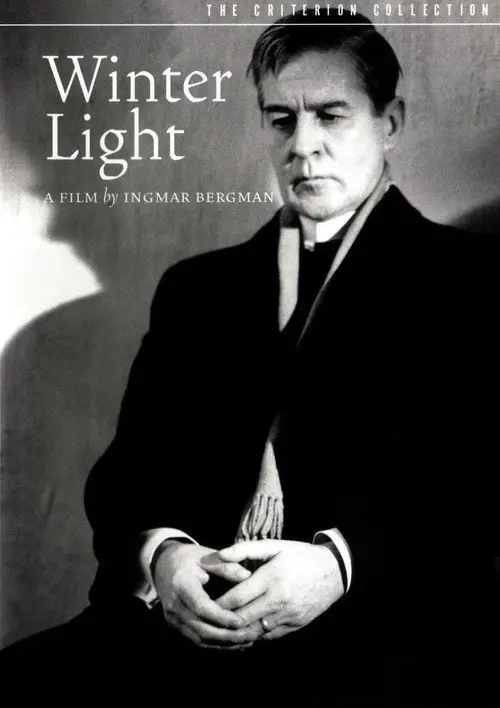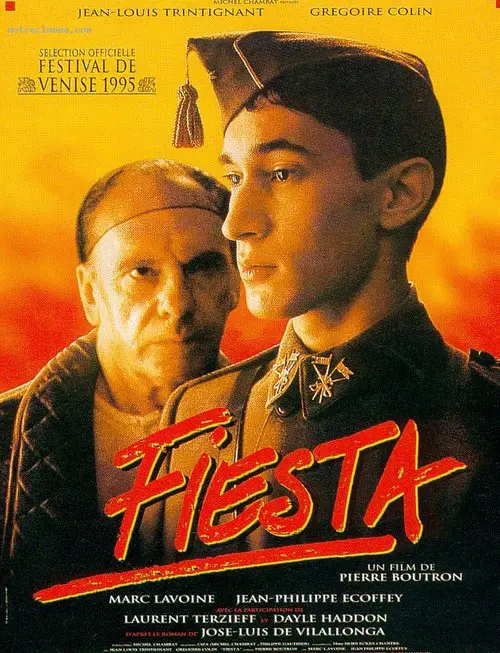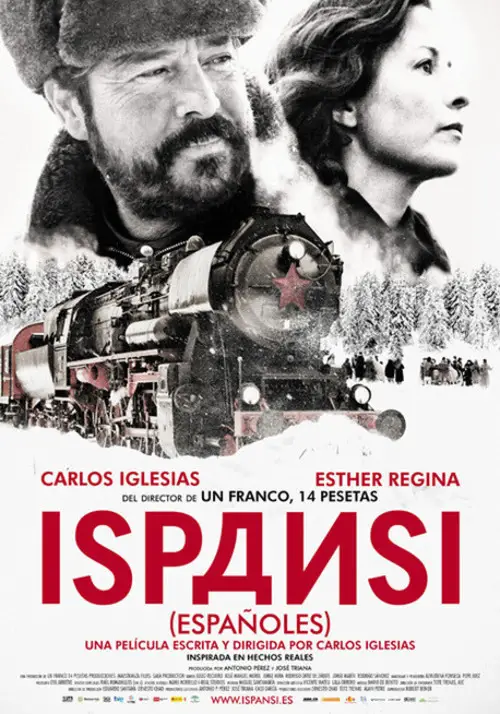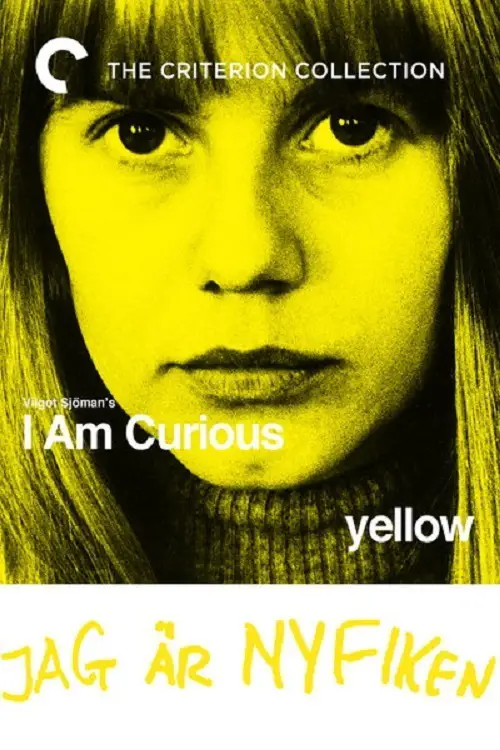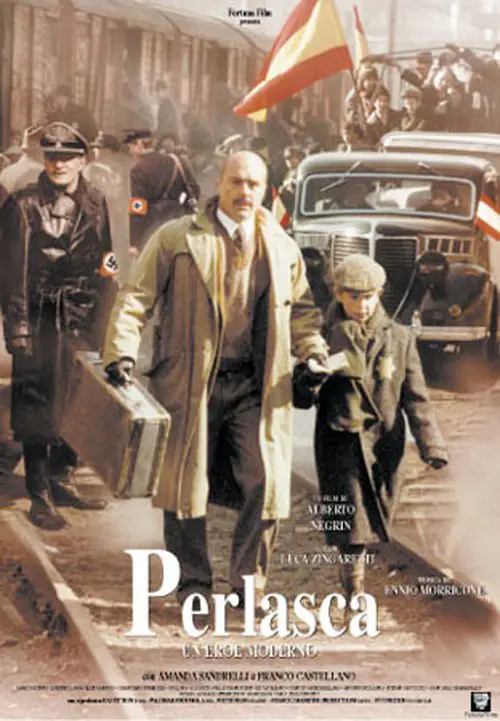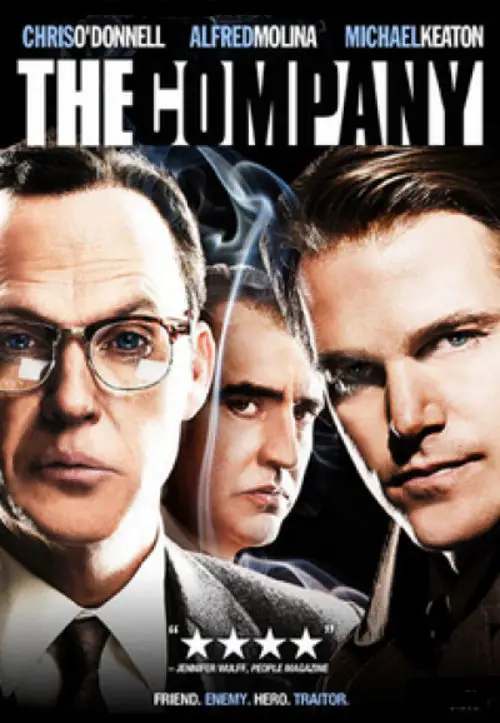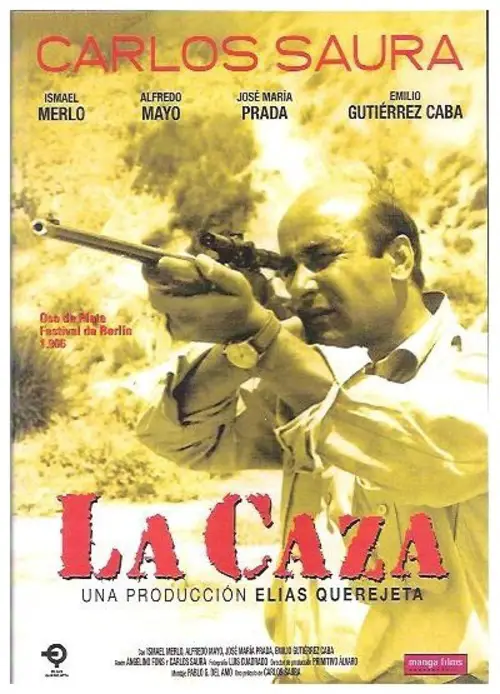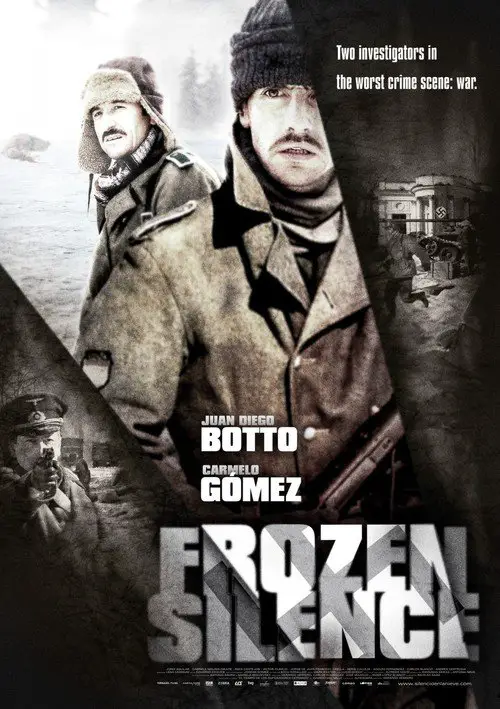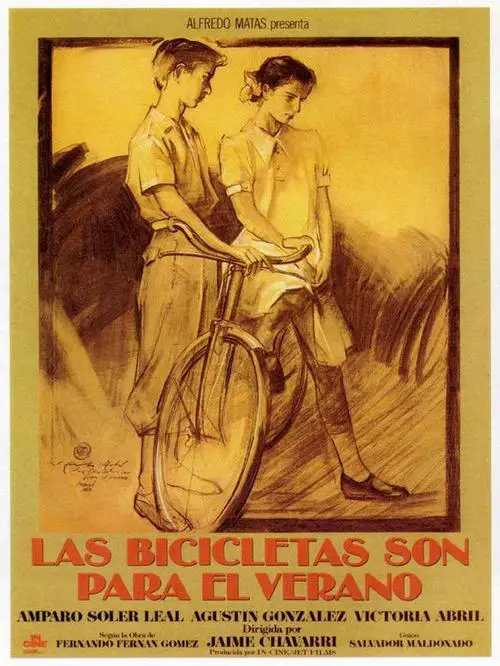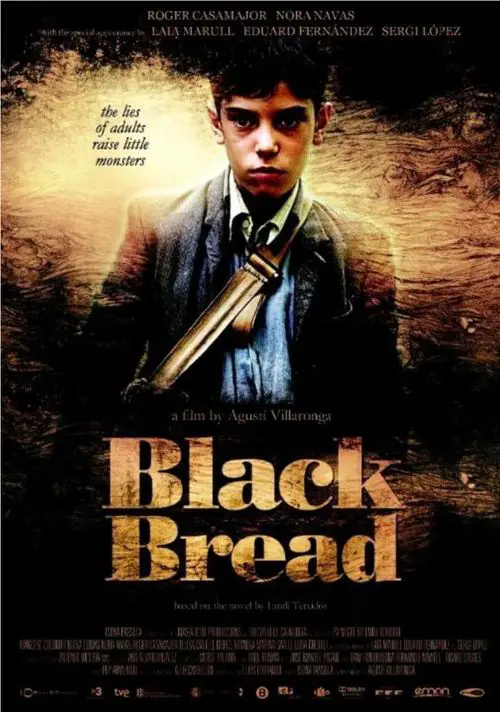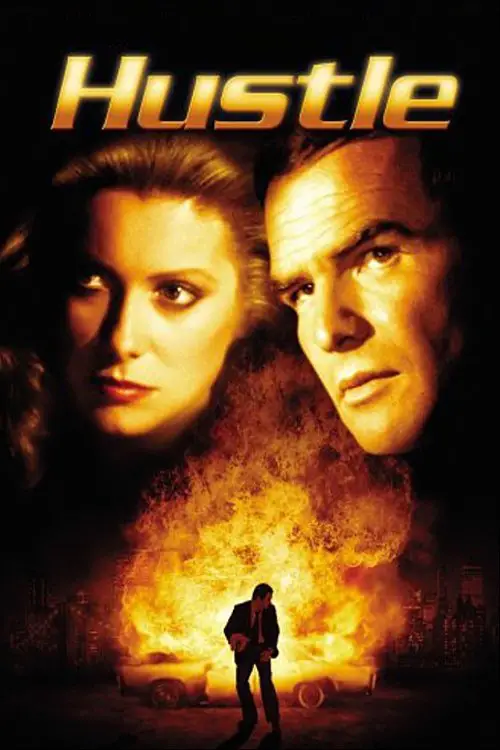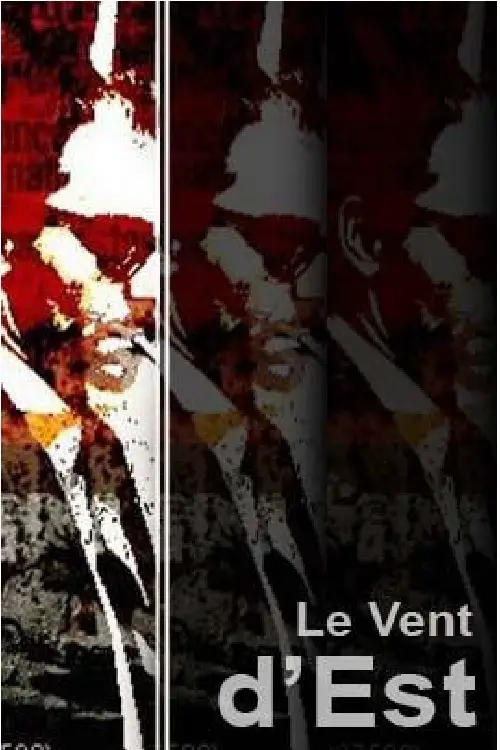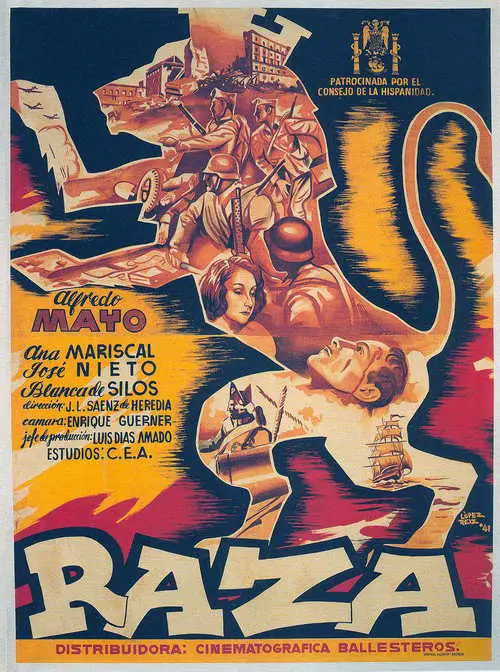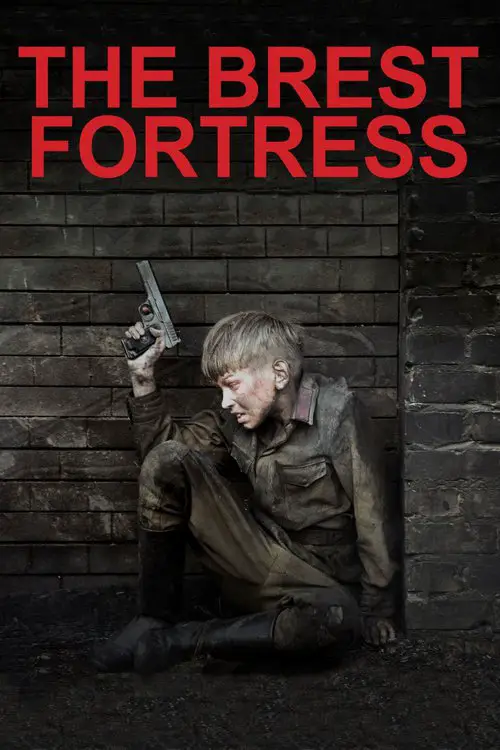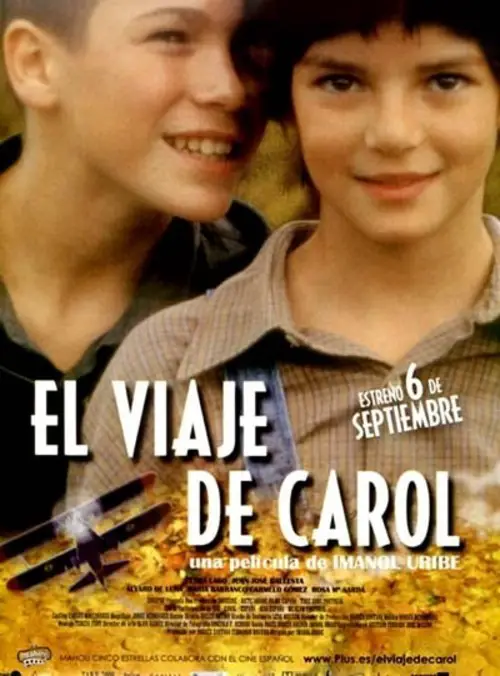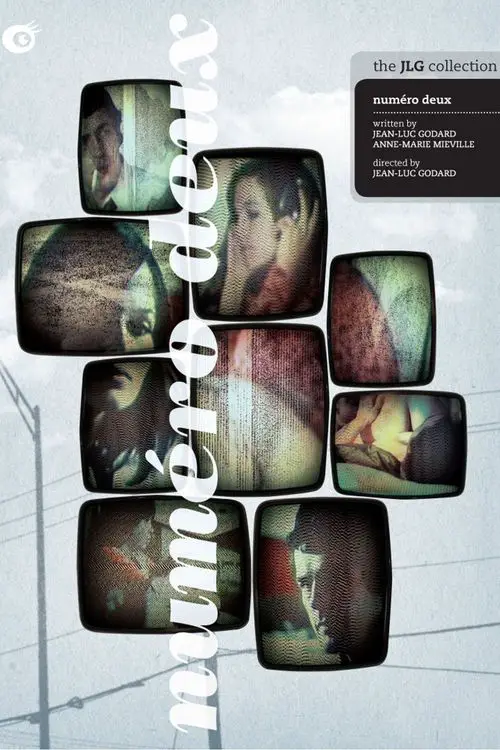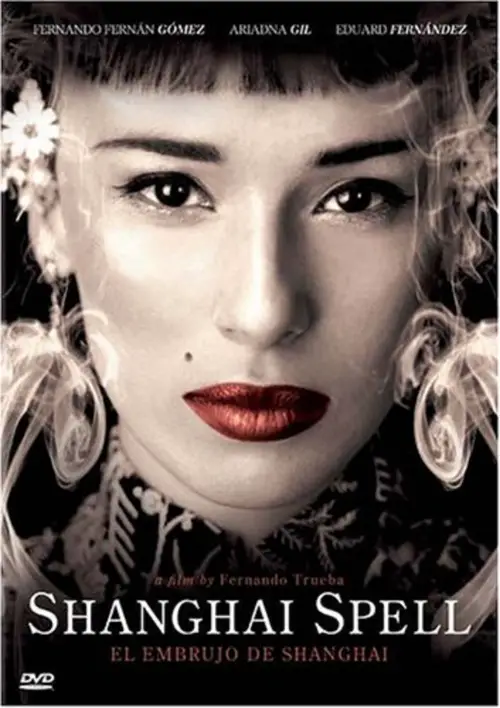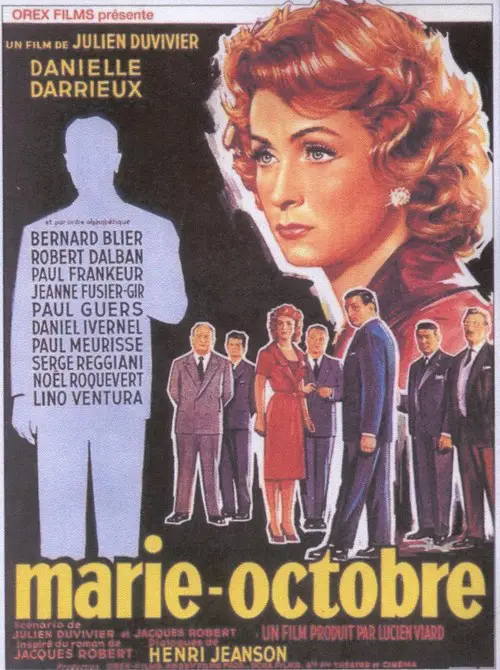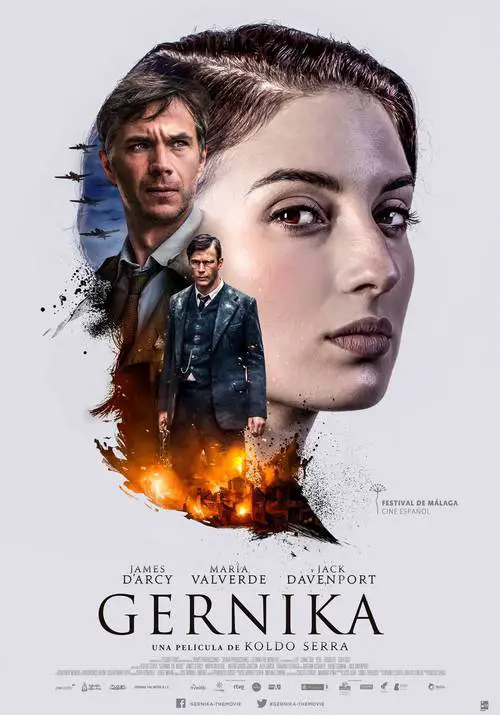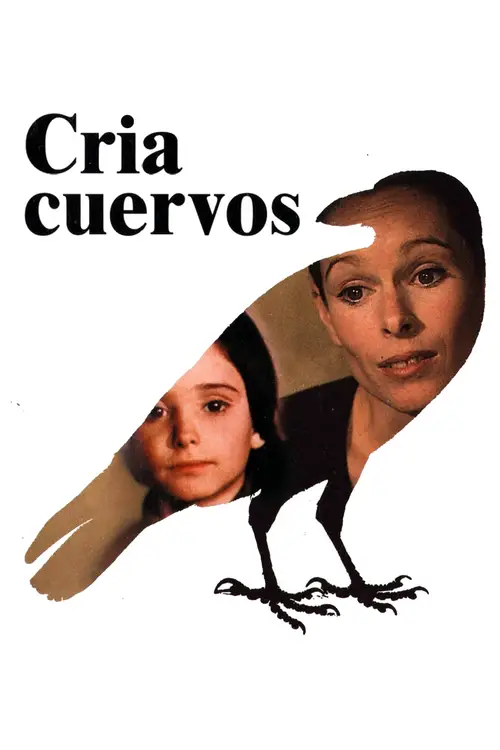Les Routes du sud (1978)
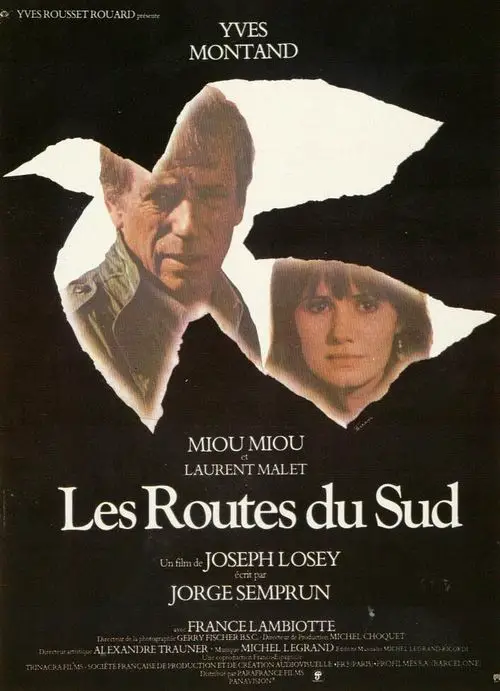
Similar movies
Manuel Artiguez, a famous bandit during the Spanish civil war, has lived in French exile for 20 years. When his mother is dying he considers visiting her secretly in his Spanish home town. But his biggest enemy, the Spanish police officer Vinolas, prepared a trap at the hospital as a chance to finally catch Artiguez.
At the outbreak of the Spanish Civil War, the nun Maria is forced to flee her convent. She takes refuge in a brothel, until it is liberated by a woman's anarchist group. Maria joins the group and eventually goes to the front. The women's group faces the problems of fighting not only the nationalists, but also factions on the left seeking to impose a more traditional military structure. Written by Brian Rawnsley
Arising out of the horror of the Spanish Civil War, a candidate for canonization is investigated by a journalist who discovers his own estranged father had a deep, dark and devastating connection to the saint's life.While researching the life of Josemaria Escriva, the controversial founder of Opus Dei, the young journalist Robert uncovers hidden stories of his estranged father Manolo, and is taken on a journey through the dark, terrible secrets of his familyâs past.
When the professor and writer Lola Sánchez is assigned to write a column in the newspaper about the Spanish Civil War, she researches and finds for the first time about the shooting of Rafael Sánchez Mazas. Lola has lost her passion for writing, and she becomes intrigued about Rafael, who was a writer and journalist that returned to Spain from the Italy of Mussolini and founded the fascist party Spanish Falange, becoming advisor of the leader Jose Antonio Primo de Rivera. When the lefts won the election in 1936, the Falange became illegal, and later there was a military coup d'stat. Rafael miraculously escaped from the shooting and was spared by an unknown soldier. Lola decides to write a book about the historic event and to disclose the identity of the unknown soldier.
Paulino and Carmela are husband and wife, troubadours touring the countryside during the Spanish Civil War. They are Republicans, and with their mute assistant, Gustavete, they journey into rebel territory by mistake. They are arrested, fear a firing squad, and receive a reprieve from an Italian Fascist commander who loves the theatre. He arranges a performance for his troops, bargaining with Paulino to stage a burlesque of the republic in exchange for the actors' freedom. Will the fiery and patriotic Carmela consent?
The movie narrates the story of David Carr, an unemployed worker and member of the Communist Party of Great Britain. In 1936 he decides to fight for the Republican side in the Spanish Civil War, an anti-fascist coalition of liberals, communists and anarchists. Similar to George Orwell's experiences documented in Homage to Catalonia, he joins the POUM worker militia and witnesses first hand the betrayal of the Spanish revolution by the Stalinists, loyal only to the dictat of Moscow.
"The Anarchist's Wife" is the story of Manuela who is left behind when her husband Justo fights for his ideals against Franco's Nationalists during the Spanish Civil War. He is deported to a concentration camp, and upon his release, continues the fight against nationalism in the French resistance. Years, pass without a word from him, but his wife never gives up hope of seeing him again.
The film centres on Moncho and his coming-of-age experience in Galicia in 1936. Moncho develops a close relationship with his teacher Don Gregorio who introduces the boy to different things in the world. While the story centres on Moncho's ordinary coming-of-age experiences, tensions related to the looming Spanish Civil War periodically interrupt Moncho's personal growth and daily life.
In the post Spanish civil war years, Catalan kids would sit in circles among the ruins and tell stories, known as "aventis" (the film's original title in Catalan, its original language). These tales mix war stories, local gossip, comic book characters, fantasy and real events. The "aventis" told in this film are told in flashback. In the mid 80s, 45 or so years after the age of the "aventis," a doctor and a nurse-nun (who grew up together, and now are co-workers in a hospital) identify the corpse of one of the main characters of the "aventis" of their childhood and adolescence. Besides the interesting flashbacks - a chronical of the Civil War in a "typical" Barcelona microcosm itself, the discovery of this body (belonging to someone long presumed dead) leads to other surprises and unresolved doubts, several decades later.
In 1939, American Tom Martin, who fought in the Spanish Civil War, awaits execution at the hands of the Fascist victors when reporter Augusta 'Gusto' Nash, for a scoop, aids him in an audacious escape. Of course, Tom tries to romance Gusto; but though she likes him, her career comes first, and Tom himself prefers freedom-fighting to settling down. Comedy becomes drama as their mixed feelings lead them on a circuitous path through the deepening chaos and catastrophe of the early days of World War II.
Jorge and Enrique are two artist in the post Spanish Civil War times that adopt an orphan child called Miguel. With a varieté company that travel around the country, Jorge and Enrique see the horrors left by the war meanwhile the Republic Army watch Jorge and the rest of the company suspecting that some of them collaborate with the rebels opposite to the Francoist Regime.
After the Spanish Civil War breaks out, the Prado Museum is being evacuated. One of the guards finds a painting by the master, Goya, and takes it to prevent damage to the work of art. In the interim, he meets a young lady with whom he falls in love. Assisted by her and her family members, the soldier attempts to save Goya's masterpiece intact amidst the war and violence.
As in the novel of the same title from Camilo Jose Cela, "La Colmena" is a sad composition with the stories of many people in the Madrid of 1942, just the postwar of the spanish civil war. The main theme of the film is the contrast between the poets, surviving close to misery under the Franco's regime, and the winners of the war, the emerging class of the people that makes easy money with illegal business.
In the aftermath of the Spanish Civil War, Ana, a sensitive seven-year-old girl in a rural Spanish hamlet is traumatized after a traveling projectionist screens a print of James Whale's 1931 "Frankenstein" for the village. The youngster is profoundly disturbed by the scenes in which the monster murders the little girl and is later killed himself by the villagers. She questions her sister about the profundities of life and death and believes her older sibling when she tells her that the monster is not dead, but exists as a spirit inhabiting a nearby barn. When a Loyalist soldier, a fugitive from Franco's victorious army, hides out in the barn, Ana crosses from reality into a fantasy world of her own.
After losing his father, 10-year-old Carlos arrives at the Santa Lucia School, which shelters orphans of the Republican militia and politicians, and is taken in by the steely headmistress, Carmen, and the kindly professor, Casares. Soon after his arrival, Carlos has a run-in with the violent caretaker, Jacinto. Gradually, Carlos uncovers the secrets of the school, including the youthful ghost that wanders the grounds.
When the single middle-aged Luis travels from Barcelona to bury the remains of his mother in the vault of his family in Segovia, he is lodged by his aunt Pilar in her old house where he spent his summer of 1936 with her. He meets his cousin Angelica, who was his first love, living on the first floor with her husband and daughter, and he recalls his childhood in times of the Spanish Civil War entwined with the present.
At the end of the Spanish civil war, Fando, a boy of about ten, tries to make sense of war and his father's arrest. His mother is religious, sympathetic to the Fascists; his father is accused of being a Red. Fando discovers that his mother may have aided in his father's arrest. Sometimes we witness Fando imagining explanations for what's going on; sometimes we see him at play, alone or with his friend Thérèse. Oedipal fantasies and a lad's natural curiosity about sex and death mix with his search for his mother's nature and his father's fate. Will Fando survive the search?
In 1938 the Spanish Civil War has worn both armies and destroyed the mood of the people of both sides. The differences between national Republicans however are revealing: The fascist side has the unconditional support of arms and men facilitated by Hitler and Mussolini while the Republican army is ignored by a Europe more concerned of a possible World War than the fate of Spain. Thousands of young people between 17 and 18 rows are called by the republican army. These are the main characters, four young for whom the Battle of the Ebro will be the first direct contact with the war. This film tells the story of these young people forced to leave behind innocence and into whistling bullets.
In 1939, Ramon (Jacques Penot) was a young man, caught up in his Barcelona family's involvement on the Republic side in the brutal Spanish Civil War. He and his family fled into exile ahead of Franco's troops. Now it is many years later, and he has come back to see how his old homestead fared in the intervening years. The only person he can find who is able to remember those years clearly is his family's old butler Claudio (Vittorio Gassman). This film is a sequel to the 1975 film by director Jaime Camino, Largas Vacaciones del 36.
Song For a Raggy Boy is a 2003 film directed by Aisling Walsh. It is based on the book of the same name by Patrick Galvin and is based on true events. The film is set in 1939, on the brink of World War II, in the St. Judes Reformatory School, a ruthless Irish school for boys. Gray, gloomy and ruled by the sadistic Brother John (Iain Glen), the school prefers punishment to rehabilitation. But new lay teacher William Franklin (Aidan Quinn), fresh from the frontline of the Spanish Civil War, fights to liberate the boys from their oppressors. Two young boys have key roles in the film. Patrick Delaney 743 (Chris Newman) arrives at the school aged 13 and a half. He, like all the boys, is allocated a number which the priests use. Franklin, however, always uses the boys' names. Delaney is an attractive boy and he receives the unwelcome attentions of a pedophile priest, Brother Mac (Marc Warren), who molests and rapes the boy in the school toilets. The boy tells of his ordeal to a visiting...
This is the story of a young Irish woman who comes to Spain to escape from the pressures she feels about her impending marriage to a political activist in Ireland. But in Spain in the 1930's, taking a job of governess in a wealthy family, she finds the same kinds of political unrest. In fact, it isn't long before she finds herself attracted to a married man who is similarly involved in the struggle against fascism and Franco. This awakens her to her nature that brings her to such men and resolves for her what she must do about the life she left in Ireland
Master craftsman Ingmar Bergman explores the search for redemption in a meaningless existence. In this stark depiction of spiritual crisis, small-town pastor Tomas Ericsson (Gunnar Björnstrand) performs his duties mechanically before a dwindling congregation. When he is asked to assist with a troubled parishionerâs (Max von Sydow) debilitating fear of nuclear annihilation, Tomas is terrified to find that he can provide nothing but his own uncertainty.
1936. Rafael, son of a Spanish nobleman, leaves the French Catholic institution where he was resident, recalled in his country by his father. Senior officer in Franco's army, it is that his son is involved in the civil war that tore Spain. Before joining the front, Rafael is assigned to a unit whose main mission is to take care of prisoners and execute subversive elements. The garrison was commanded by Colonel Masagual, a friend's father Rafael. Very old regime , the colonel who lives openly with his homosexuality Casado, his aide, is an ambiguous character, melancholy and cynical lucidity.
Lena, aged twenty, wants to know all she can about life and reality. She collects information on everyone and everything, storing her findings in an enormous archive. She experiments with relationships, political activism, and meditation. Meanwhile, the actors, director and crew are shown in a humorous parallel plot about the making of the film and their reactions to the story and each other. Nudity, explicit sex, and controversial politics kept this film from being shown in the US while its seizure by Customs was appealed.
A group of Spanish refugees try to organize protests from France. Their network is under constant threat by the police and some of them have recently been arrested. The main character (played by Yves Montand) dedicated his whole life to the battle but he feels forever estranged. He doesn't find his place nor in his adoptive country (France) nor in love.
But this film is not about the story, it's all about style. Alain Resnais has an original approach in this film and this is the thing that makes this film worth watching.
It is the real story of Giorgio Perlasca (Luca Zingaretti). During the 1920s he was an Italian Fascist supporter, fighting in Africa an in the Spanish civil war where he deserved a safe conduct for Spanish embassies. After some years, disillusioned by fascism, he is a fresh supplier for the Italian army. In the war years he is in Budapest for his business. He lives an easy life there, well introduced into the Hungarian high society, without any problem coming from the war situation. When the Nazi occupied Hungary, in 1944, instead to leave (Italy had already surrendered to the Allies) he escaped to the Spanish embassy in Budapest using his old safe conduct and becoming a Spanish citizen, changing name into Jorge Perlasca. He starts working as a diplomat here. When Sanz Briz (Geza Tordy), the Spanish consul, is removed, Perlasca immediately substitutes him, like if he was officially appointed from Spanish authorities... Written by 1felco
1943. In the midst of World War II, a serial murderer appears in the Blue Division, volunteer body of Spanish soldiers who fought on the Russian front with German troops. After finding the body of a Spanish soldier who has been stuck in the shoulder and has a knife inscription ("Look at God looking at you"), an investigation is initiated by the soldier in charge Arturo Andrade (Juan Diego Botto ), police inspector who takes the job with precision and professionalism, aided by Sergeant Estrada (Carmelo Gómez). They begin to suspect that behind this murder dark secrets of the past are hidden .
In the harsh post-war years' Catalan countryside, Andreu, a child that belongs to the losing side, finds the corpses of a man and his son in the forest. The authorities want his father to be made responsible of the deaths, but Andreu tries to help his father by finding out who truly killed them. In this search, Andreu develops a moral consciousness against a world of adults fed by lies. In order to survive, he betrays his own roots and ends up finding out the monster that lives within him.
Wind From the East is a product of Jean-Luc Godard's involvement, during the late 60s and early 70s, with a collective filmmaking experiment known as the Dziga Vertov Group. The film is, typically of the films he made during this period, about ideas and simultaneously about how best to express those ideas through the medium of film. The film deals with the situation of a strike and, during its first half, methodically analyzes the different components of the strike: the workers, the radical students who encourage the strike while not quite being able to communicate in the same terms as the workers, the union delegates and other middlemen who preach moderation and compromise, the employers who demand the immediate resumption of work, the police state that suppresses the strike on behalf of capitalism.
A symphony in three movements. Things such as a Mediterranean cruise, numerous conversations, in numerous languages, between the passengers, almost all of whom are on holiday... Our Europe. At night, a sister and her younger brother have summoned their parents to appear before the court of their childhood. The children demand serious explanations of the themes of Liberty, Equality and Fraternity. Our humanities. Visits to six sites of true or false myths: Egypt, Palestine, Odessa, Hellas, Naples and Barcelona.
Carol, a 12 year old Spanish-American girl from New York, travels with her mother to Spain in the spring of 1938, at the height of the Civil War. Separated from her beloved father, Carol arrives in her mother's home village and transforms the secretive family environment. Her innocence and rebellious nature drive her at first to reject a world that is at once new and foreign. But she soon journeys into adulthood through a friendship with Maruja, the village teacher, and a young local boy, Tomiche.
Someone we hear talking - but whom we do not see - speaks of a project which describes the four key moments of love: meeting, physical passion, arguments/separation and making up. This project is to be told through three couples: young, adult and old. We do not know if the project is for a play, a film, a novel or an opera. The author of the project is always accompanied by a kind of servant. Meanwhile, two years earlier, an American civil servant meets with an elderly French couple who had fought in the Resistance during World War II, brokering a deal with a Hollywood director to buy the rights to tell their story. The members of the old couple's family discuss heatedly questions of nation, memory and history.
A fourteen year old lad discovers his first love at the point of his pencil whilst drawing the portrait of a sickly but coquettish fifteen year old girl. In the neighbourhood an old freedom-fighter pits himself against bad types, a pretty cinema-ticket girl takes to the streets at night and a young anarchist dedicates himself to telling tall stories. Far away, in Shanghai, a hero of the Republic meets a beautiful femme fatal with oriental eyes. Reality and fiction become fused in an embrace.
A group of ex-resistance fighters are brought together by Marie-Octobre, the code name of Marie-Helene Dumoulin (Danielle Darrieux). The former members of the network have carried on with their lives after the war, but this evening they are going to have to live again a fateful night â the night their leader was killed. He had been betrayed, his name given to the Germans. The search for the traitor puts each personality in the spotlight â and also that of the killed leader, Castille.
In Madrid, the orphan sisters Irene, Ana and Maite are raised by their austere aunt Paulina together with their mute and crippled grandmother after the death of their mother and their military father Anselmo. Ana is a melancholic girl, fascinated by death, after seeing her mother having a painful death and her father dead in bed.
© Valossa 2015–2026
| Privacy Policy
